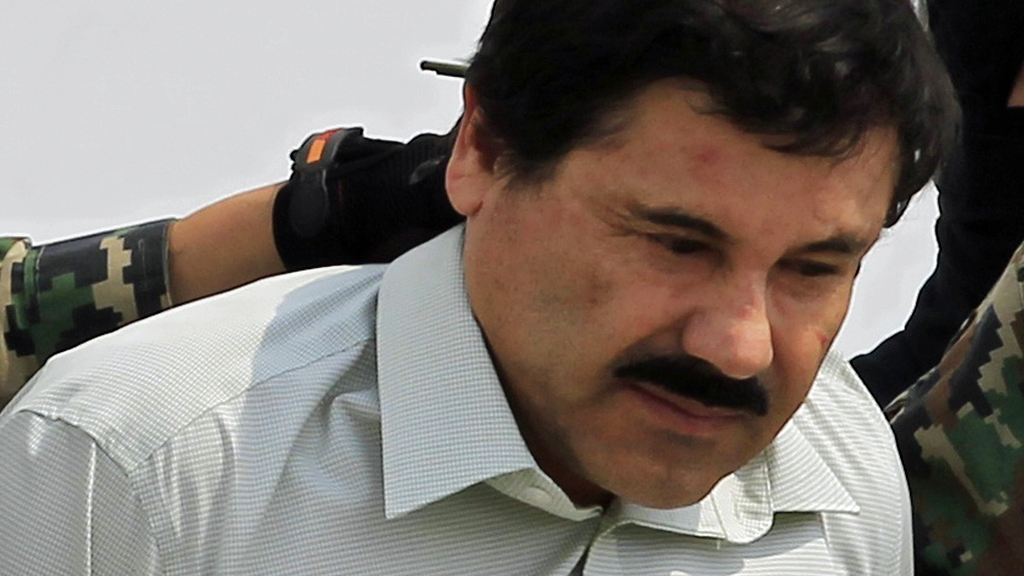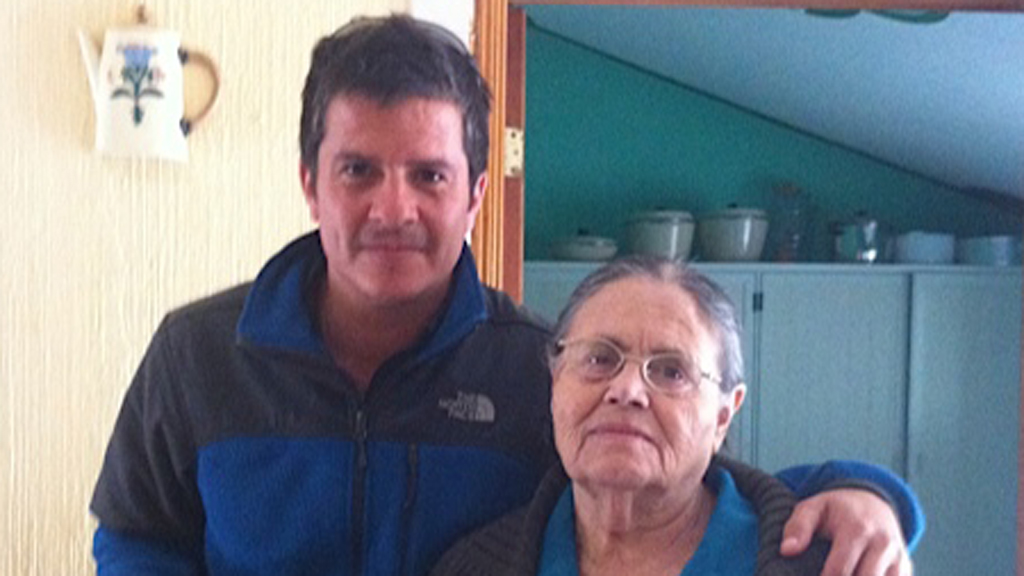Getting Shorty: into the heart of Guzman’s narco empire
 Guillermo Galdos
Latin America Correspondent
Guillermo Galdos
Latin America Correspondent
Mexico drug trafficker Joaquin “Shorty” Guzman, who was arrested last month, is among the world’s most powerful people. Guillermo Galdos travelled to Culiacan, the city at the centre of his empire.

It has been a week since Joaquin Guzman, the richest and most dangerous drug trafficker in history, was arrested in Mazatlan on Mexico’s Pacific coast, writes Channel 4 News Reporter Guillermo Galdos.
Known by his nickname “El Chapo” – which means Shorty – US officials say he imported more drugs into the United States than anyone else in history.
El Chapo (pictured above) is worth an estimated $1bn and was on the Forbes list of the most powerful people in the world.
I have just finished filming a documentary about him and the Sinaloa cartel, which he headed. We wanted to understand how his business worked, and to meet El Chapo himself.
Like Cuba under Castro
My first filming trip was to Culiacan, the headquarters of the business. The city is as synonymous with the Sinoloa cartel as Atlanta is with Coca-Cola.
All the narco players are there, from the lawyers who worked for El Chapo to the pilots who flew the drugs to the United States border. Drug trafficking was deeply ingrained in everyone’s lives – and so was fear.
Drug trafficking was deeply ingrained inf everyone’s lives in Culiacan – and so was fear.
I was warned that it would be virtually impossible to get anyone to speak openly about the man they called “El Señor”. People only whispered about him. The atmosphere reminded me of Cuba and the omnipresence of Castro.
I eventually met one of the narcos who was willing to talk. “El Flaco” was straight out of a Hollywood movie. He worked for the Sinaloa cartel and was in his mid-forties. He had been shipping drugs to the US since he was 20 years old, and told me he had never once been arrested. He was currently responsible for shipping cocaine from Sinaloa to the border town of Tijuana.
‘It’s only business’
I met him in a market in Culiacan. He stepped out of his brand new GMC and shook my hand as if he had known me for years. Seconds later he opened the back of his car where he had a bar and offered me a drink.
He showed me a trailer with more than 200 kilos of coke that was going to go to the border the next day.
“My job is to make sure that the same amount of merchandise that arrives here makes it to the border.”
He was the first person I met who spoke about the Sinaloa boss with no fear in his face. “It’s only business,” he told me. “If you respect the rules and pay what you owe, you will stay alive.”
Armed to the teeth
El Flaco knew El Chapo and promised to pass on my message – that we wanted to meet with his boss – but warned it could take weeks before he received an answer.
Time passed and we heard nothing. I was getting frustrated that all our efforts to get to El Chapo, and to see the inner workings of his operation, were coming to nothing.
The area was all under the control of the cartel. Everyone I met worked for El Chapo.
I went home and waited. One day I received a phone call from a well-connected contact in Mexico. “You must come here as soon as possible. No cameras. Just you”. It was the call I had been waiting for.
I took the first flight from Lima and 24 hours later, escorted by El Chapo’s men, I was in the heart of his operation in the mountains of Culiacan.
Marijuana and poppies were the staple diet of the cartel, and as soon as I arrived I got to see and film how it all worked. This area was all under the control of the cartel. Everyone I met worked for El Chapo.
I spent a week with the farmers who were in charge of harvesting and packing the tonnes of grass. They were all armed to the teeth.

‘They blame my son for everything’
Over the next few months I took three more trips to the mountains of Culiacan. I was taken to a place that I was told El Chapo loved more than anywhere on earth. It was called El Cielo – “Heaven” in English – and it was a small house on the top of the mountain. From there you could see the whole valley below.
I felt I was getting close to the man himself, and his men said he had agreed to meet me. I was hoping that on my last trip I would finally get to meet him. But he didn’t show up.
They blame my son for everything bad in Mexico. But all he did was escape from prison. Doña Consuelo, Joaquin Guzman’s mother
Instead I was sent to have lunch with his mother, Doña Consuelo (pictured above).
“They blame my son for everything bad that happens in Mexico,” she told me. “But all he did was escape from prison. He didn’t kill anybody to get out.”
She was referring to his escape from a high-security Mexican prison in 2001, when he reportedly hid in a laundry basket.
Public enemy number one
His mother might not believe what her son is accused of, but at the time of his arrest he was allegedly presiding over the biggest drug cartel in history.
The US Drug Enforcement Agency believes El Chapo surpassed the influence and reach of Pablo Escobar.
He faces charges in Mexico, but is also wanted by at least seven district courts in the US, including Chicago, which last year named him public enemy number one because of the influx of drugs into the city’s streets from his Sinaloa cartel.
The Legend of Shorty will be premiered at the South by South West Film Festival on Friday 7 March, and then shown on Channel 4